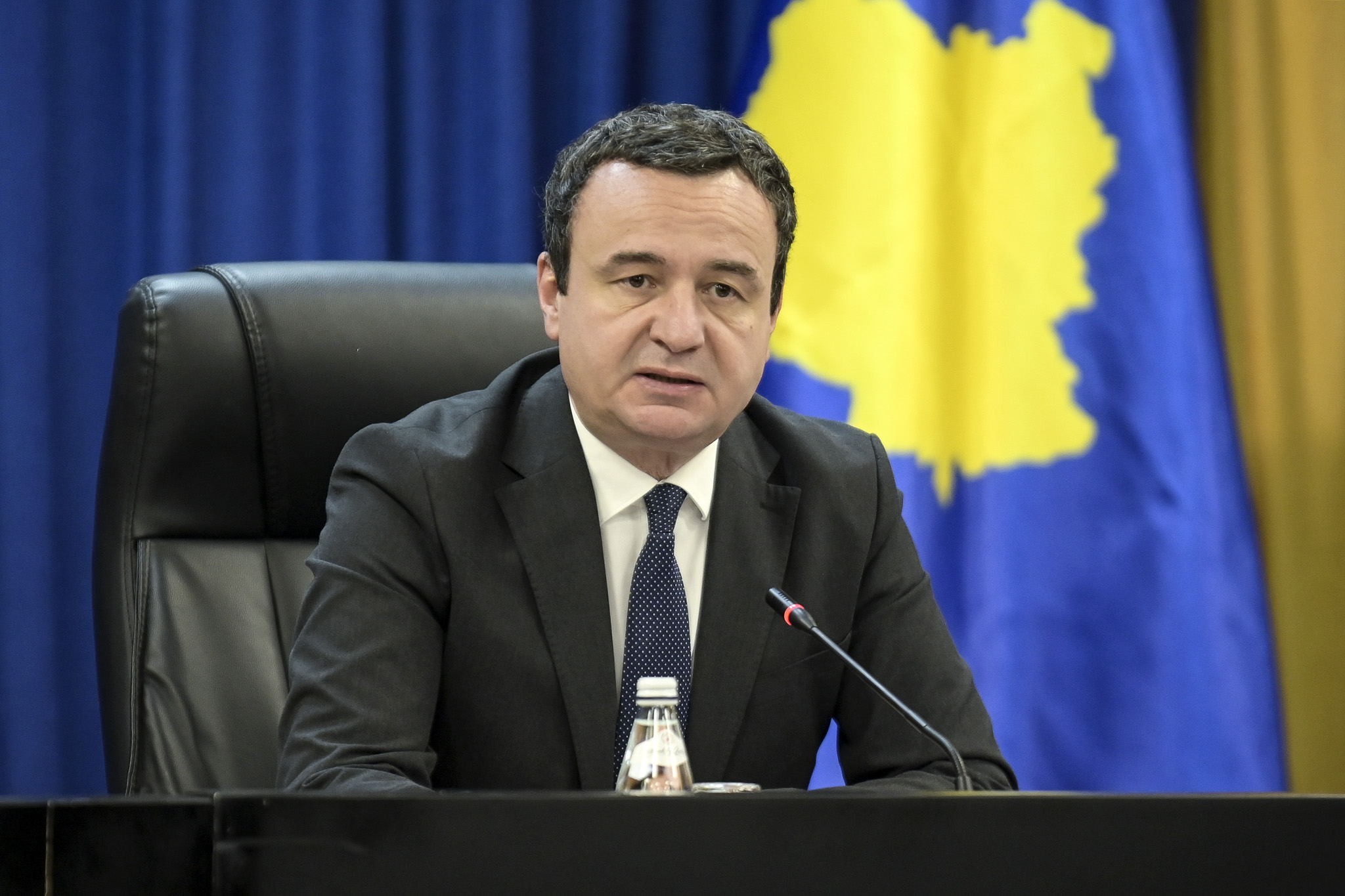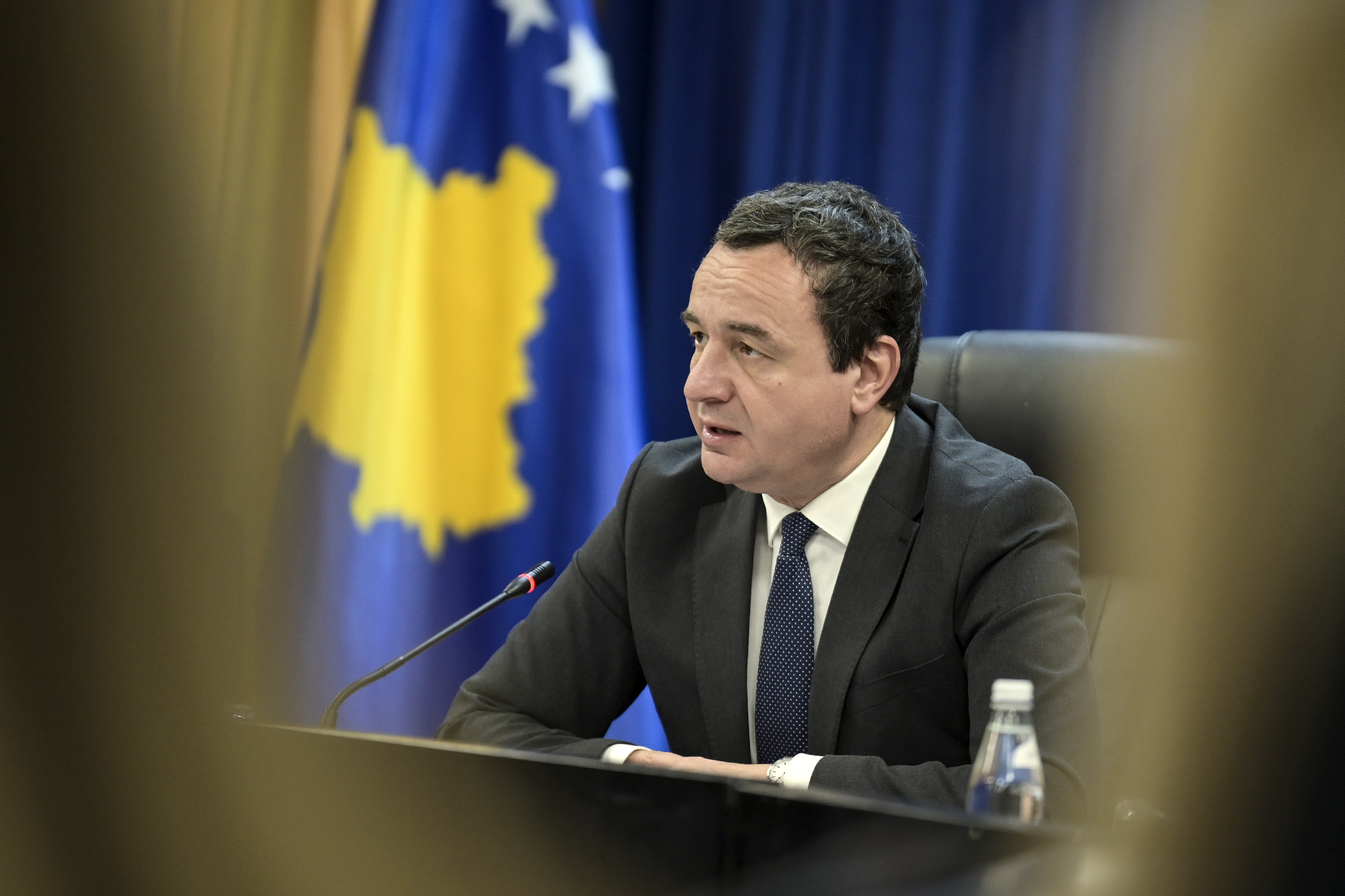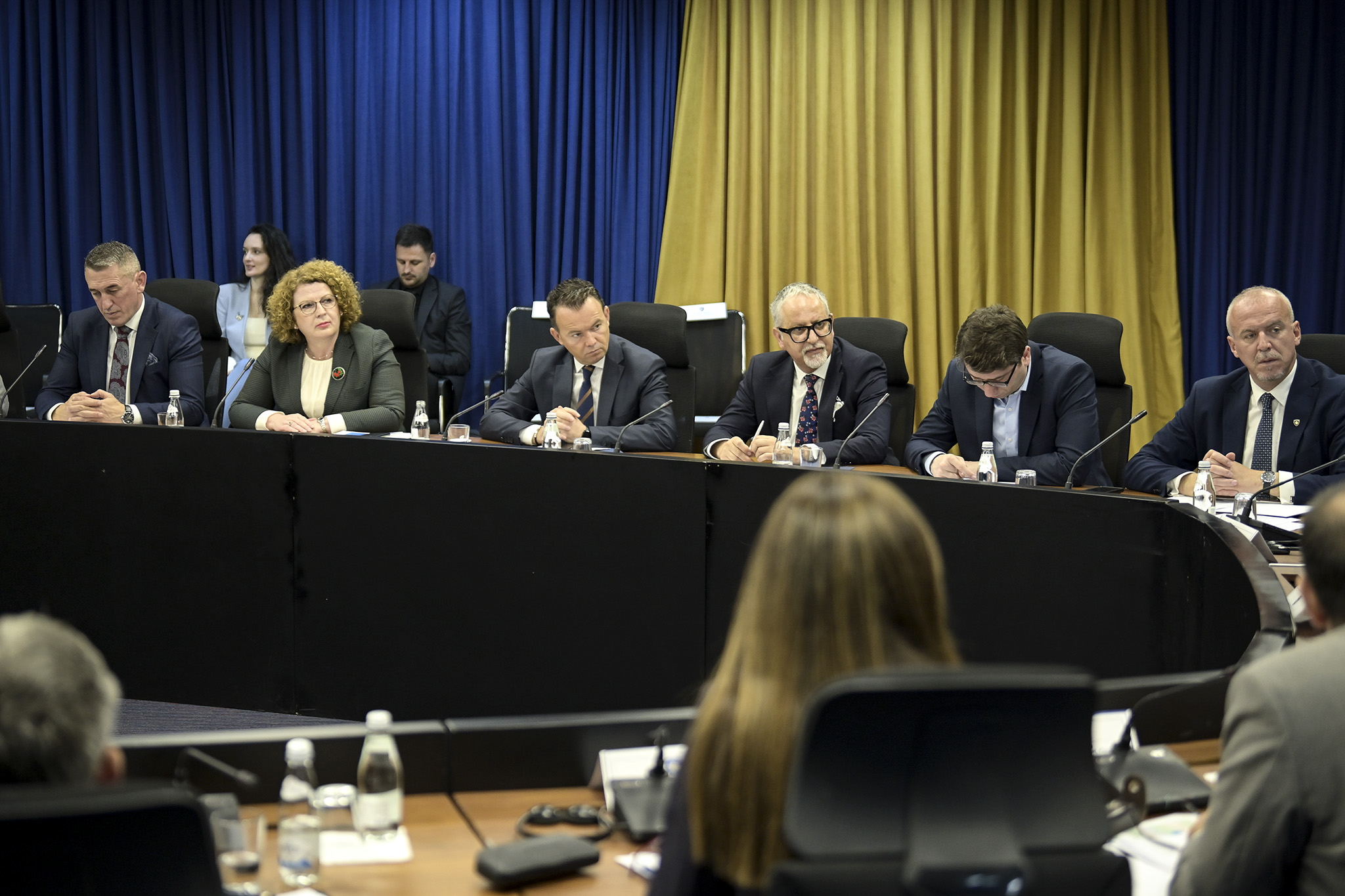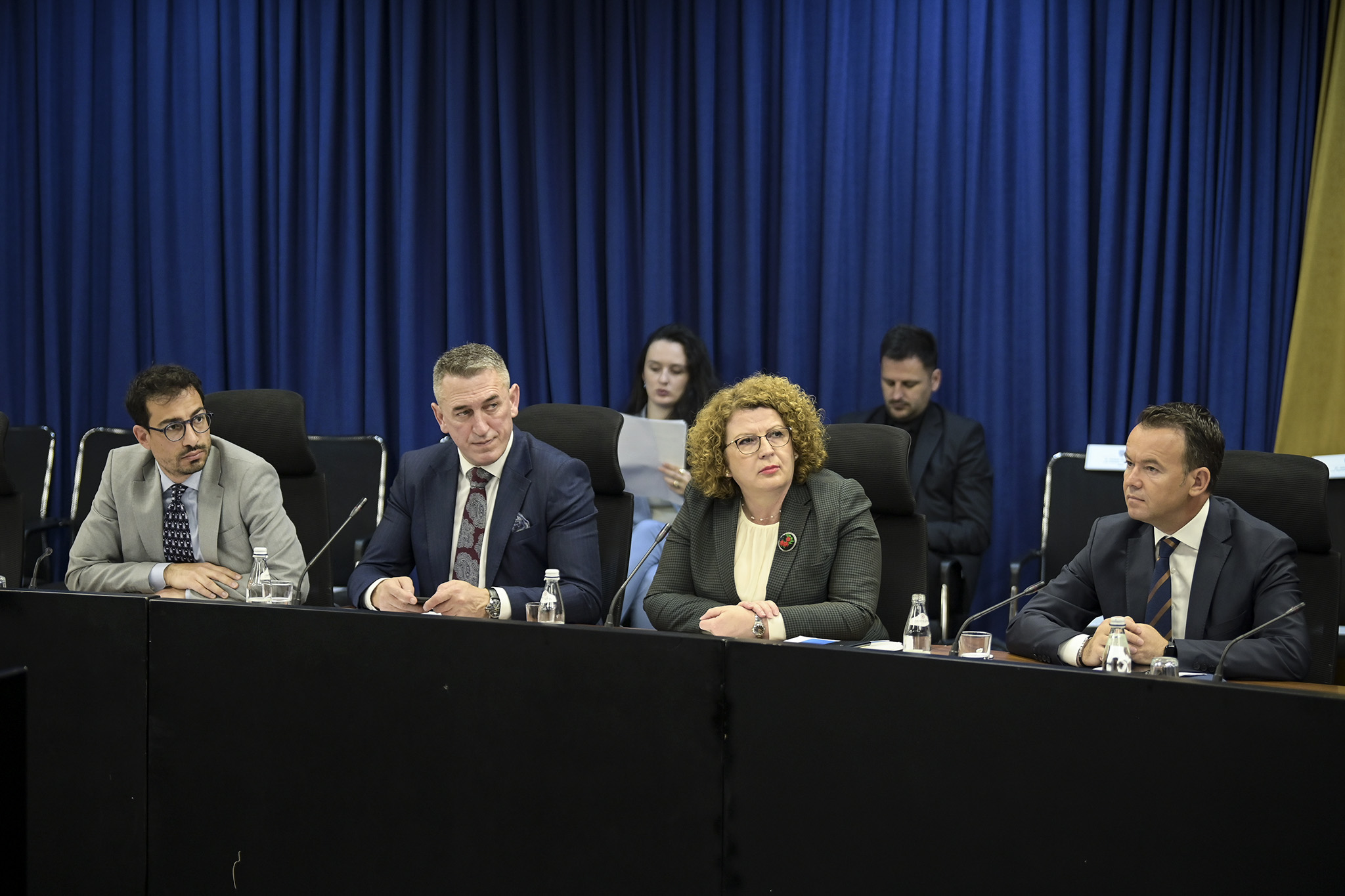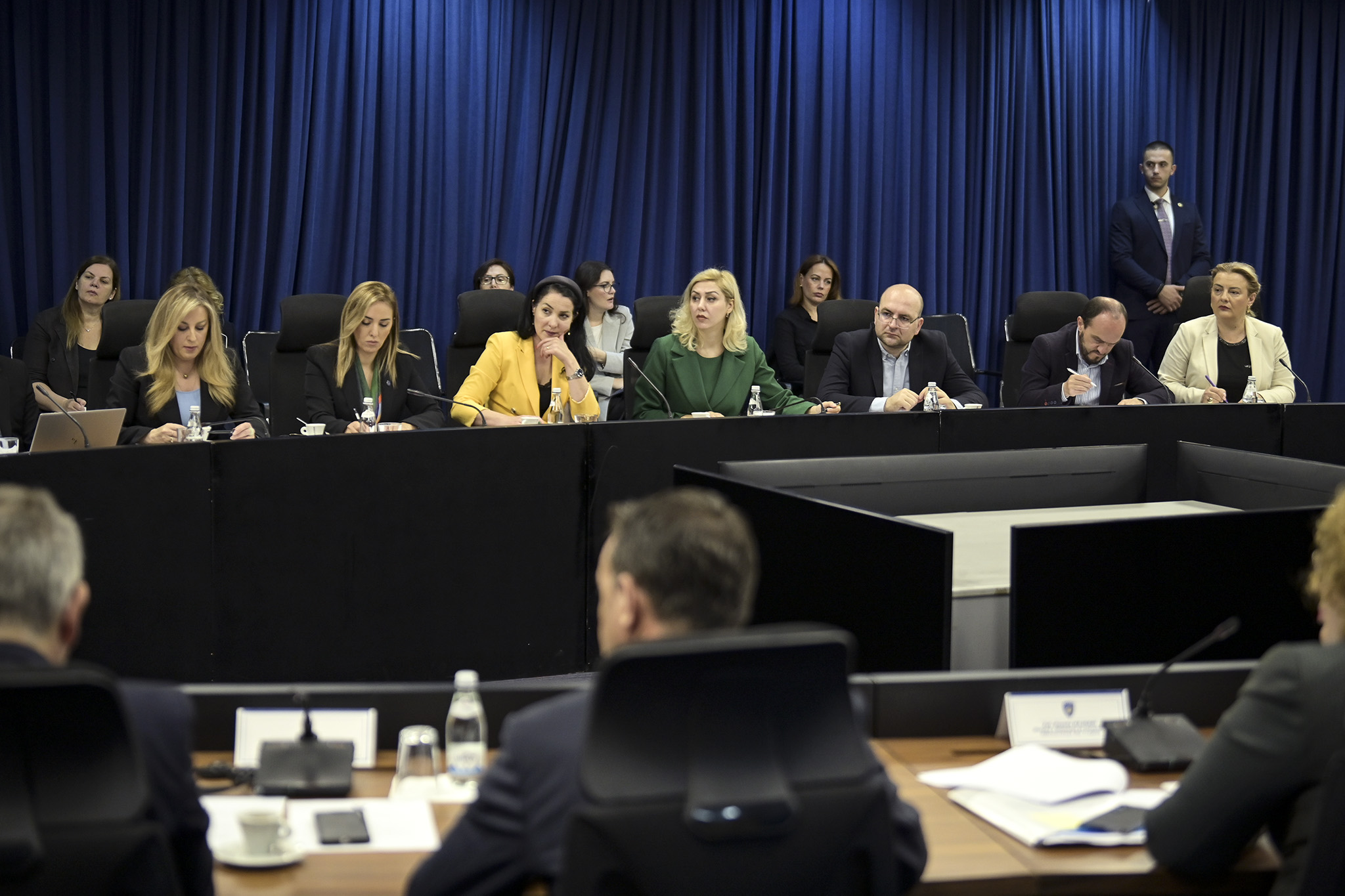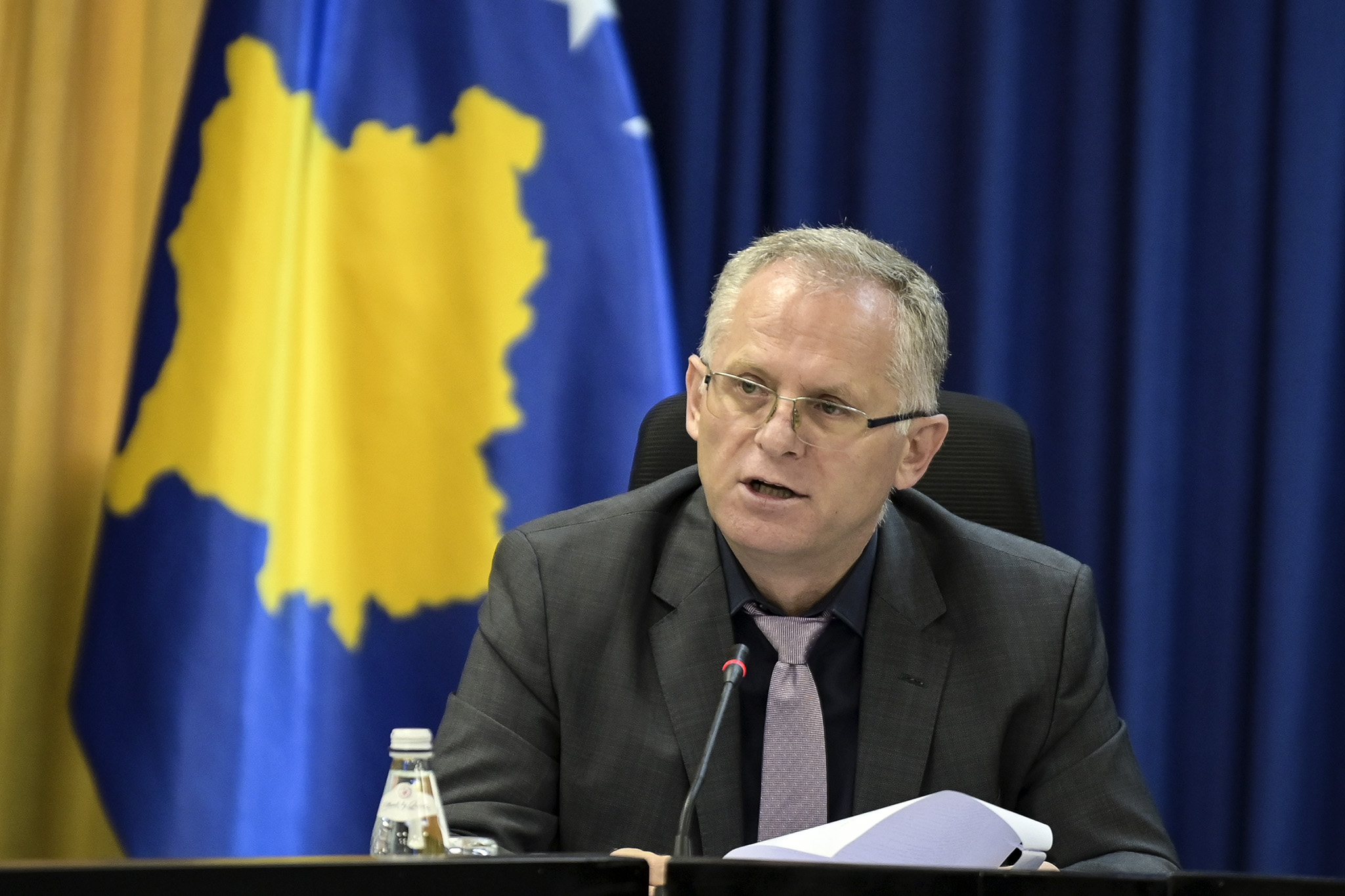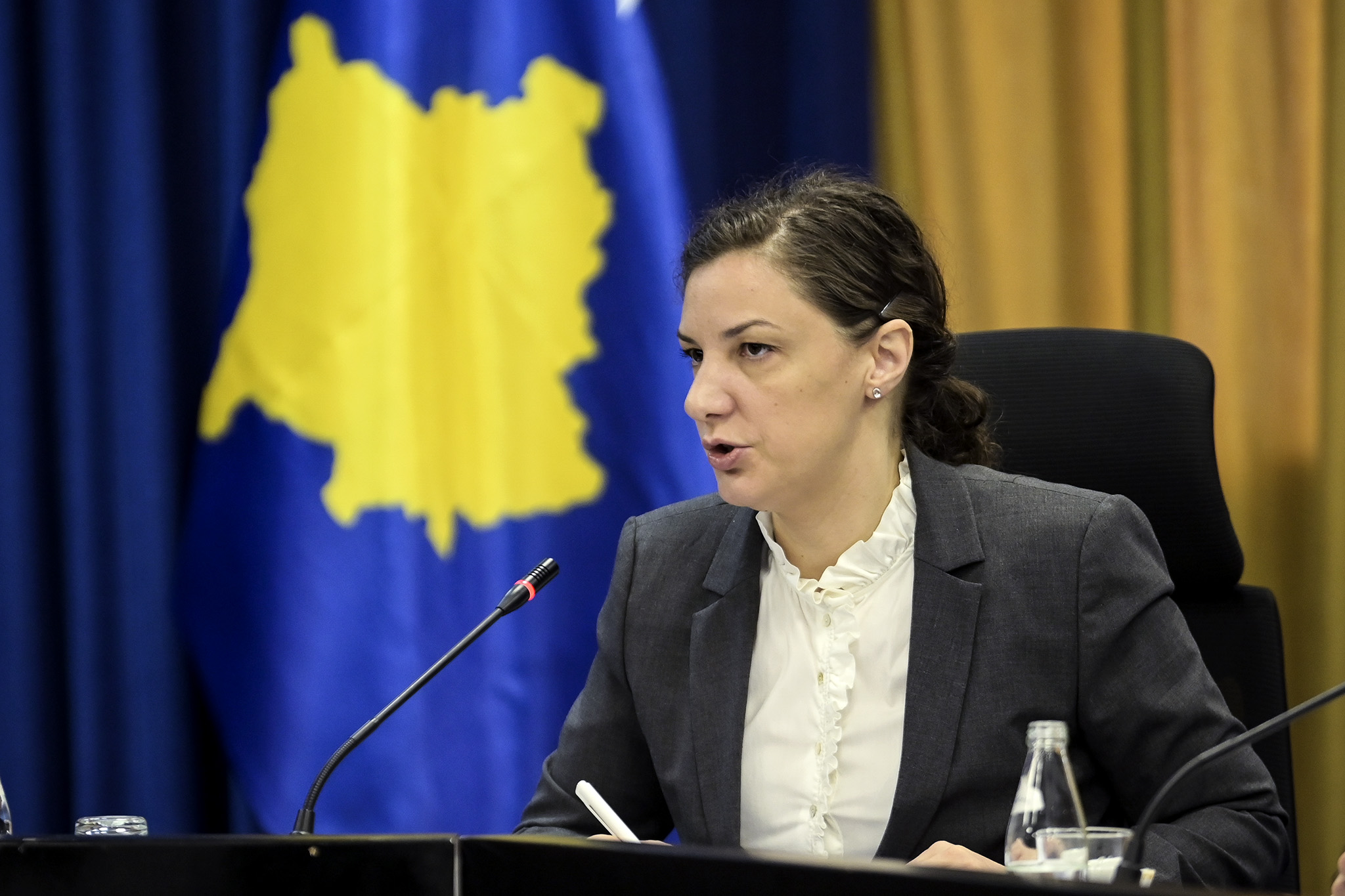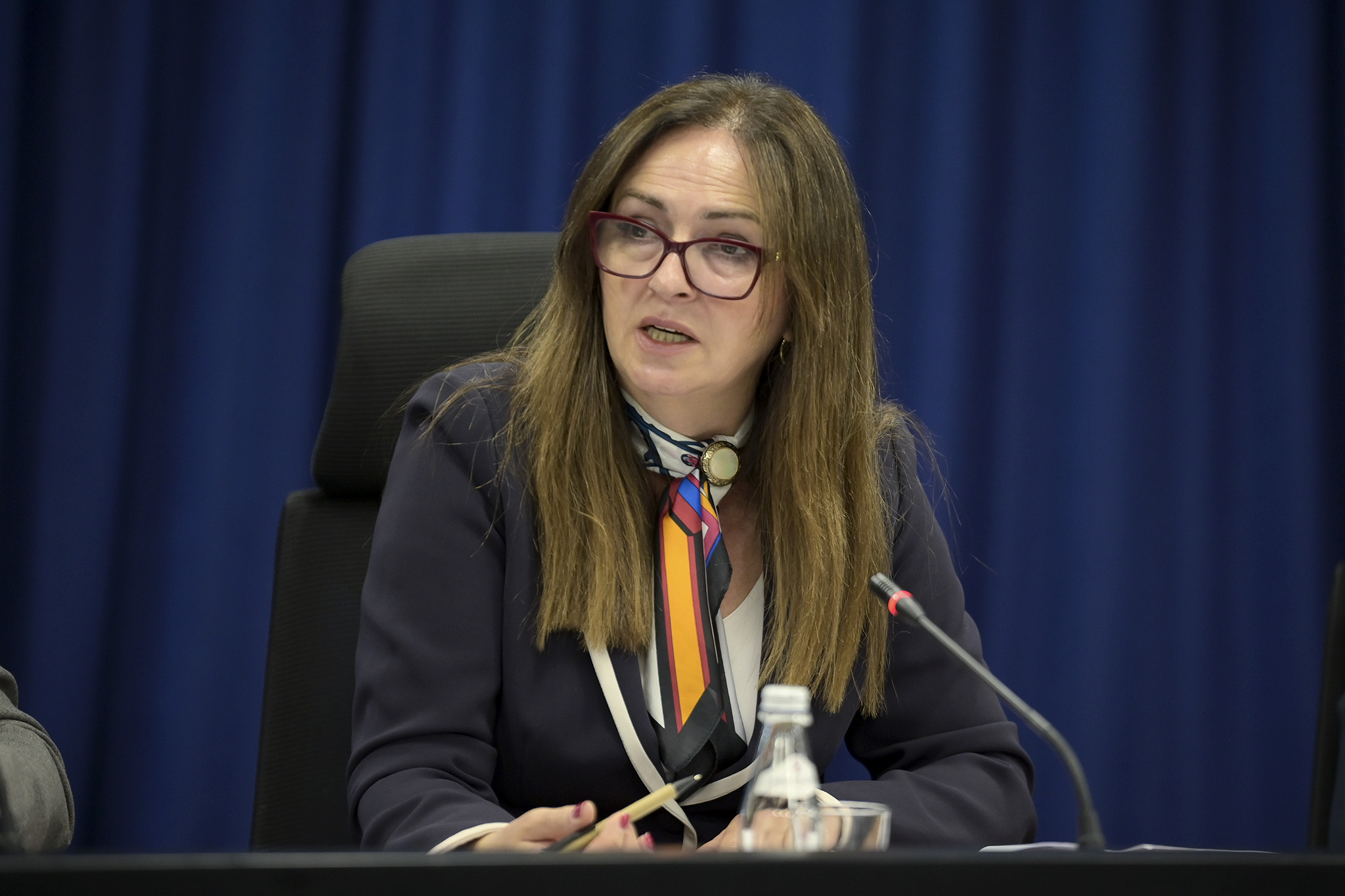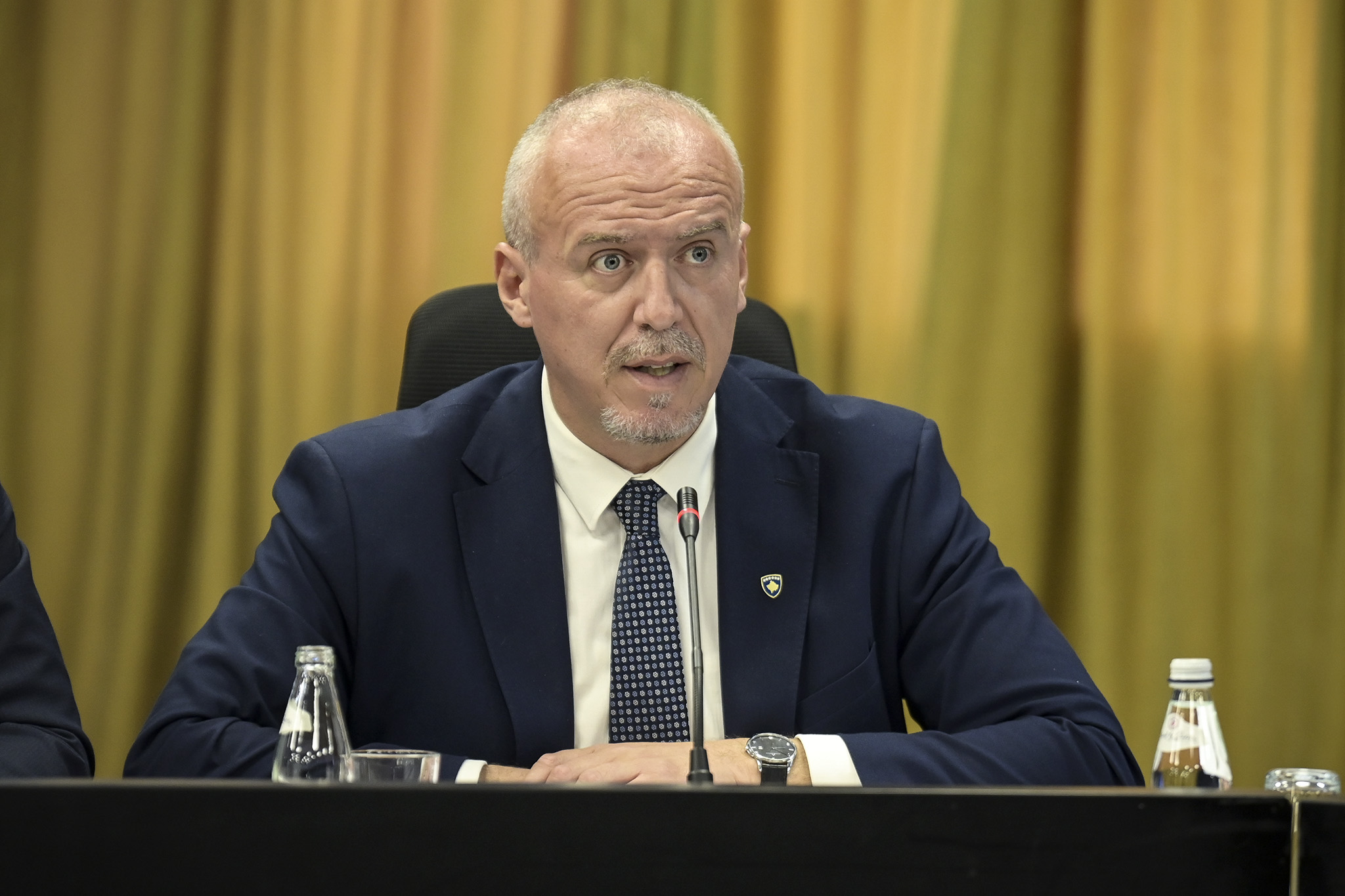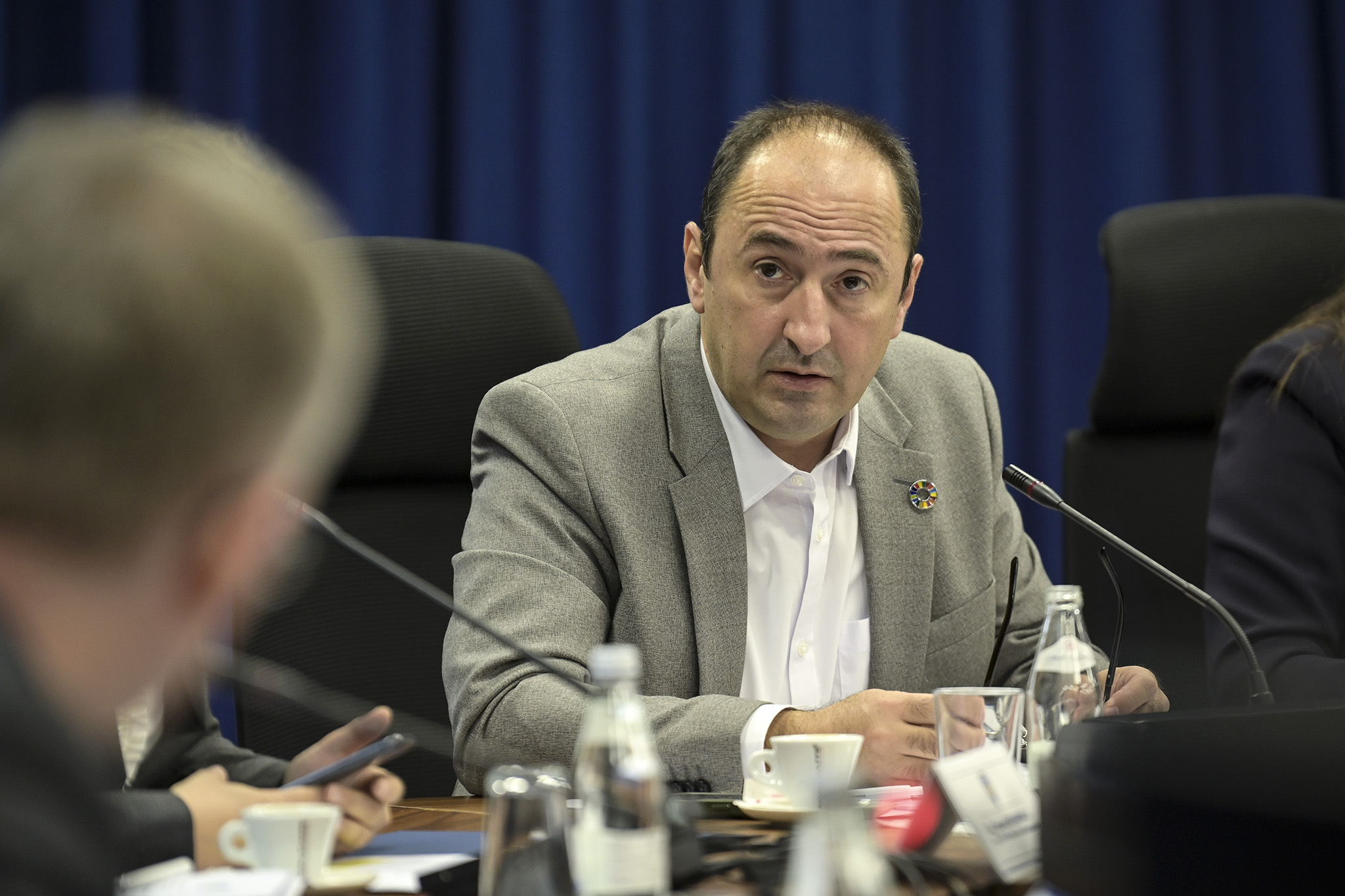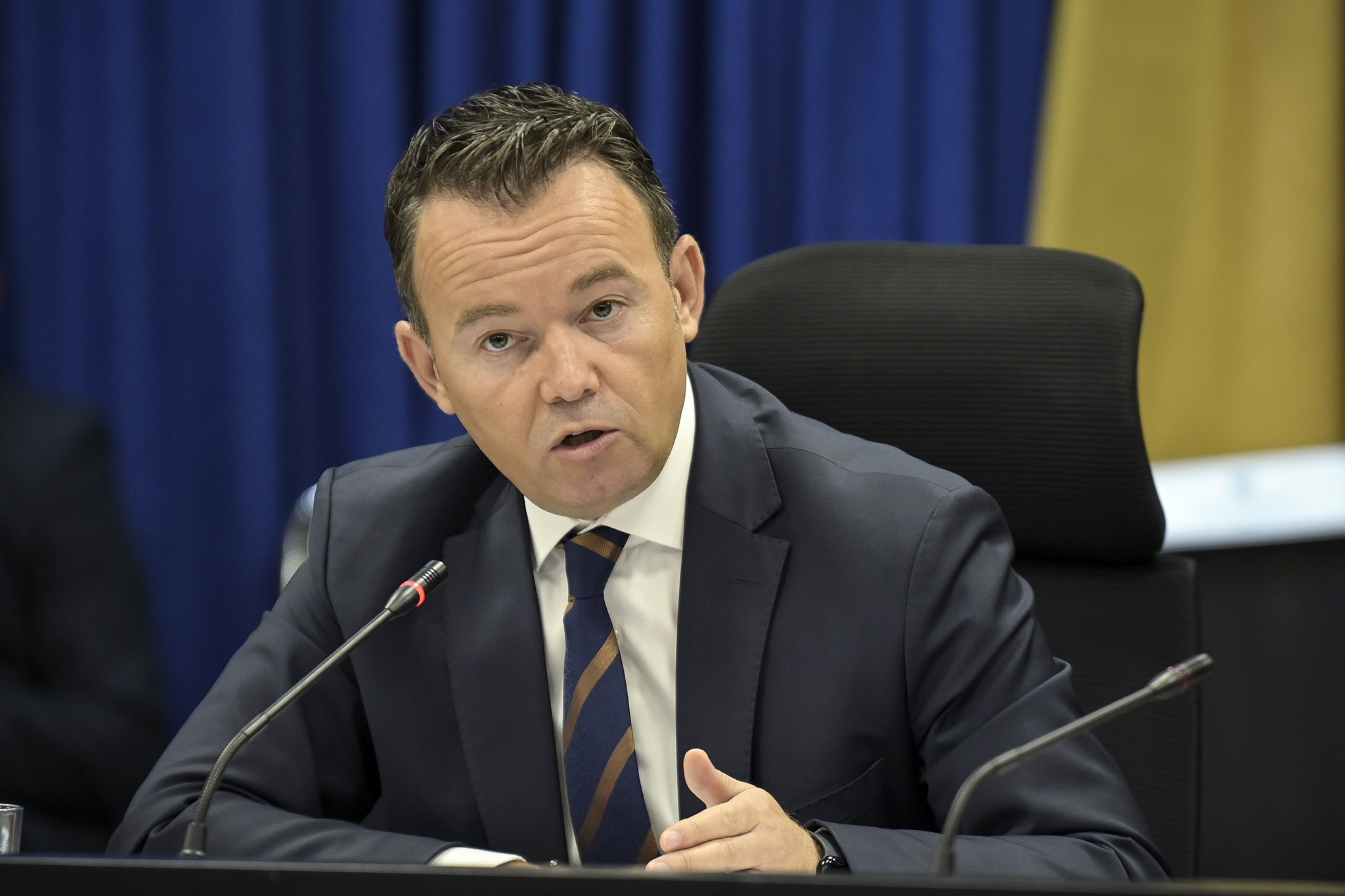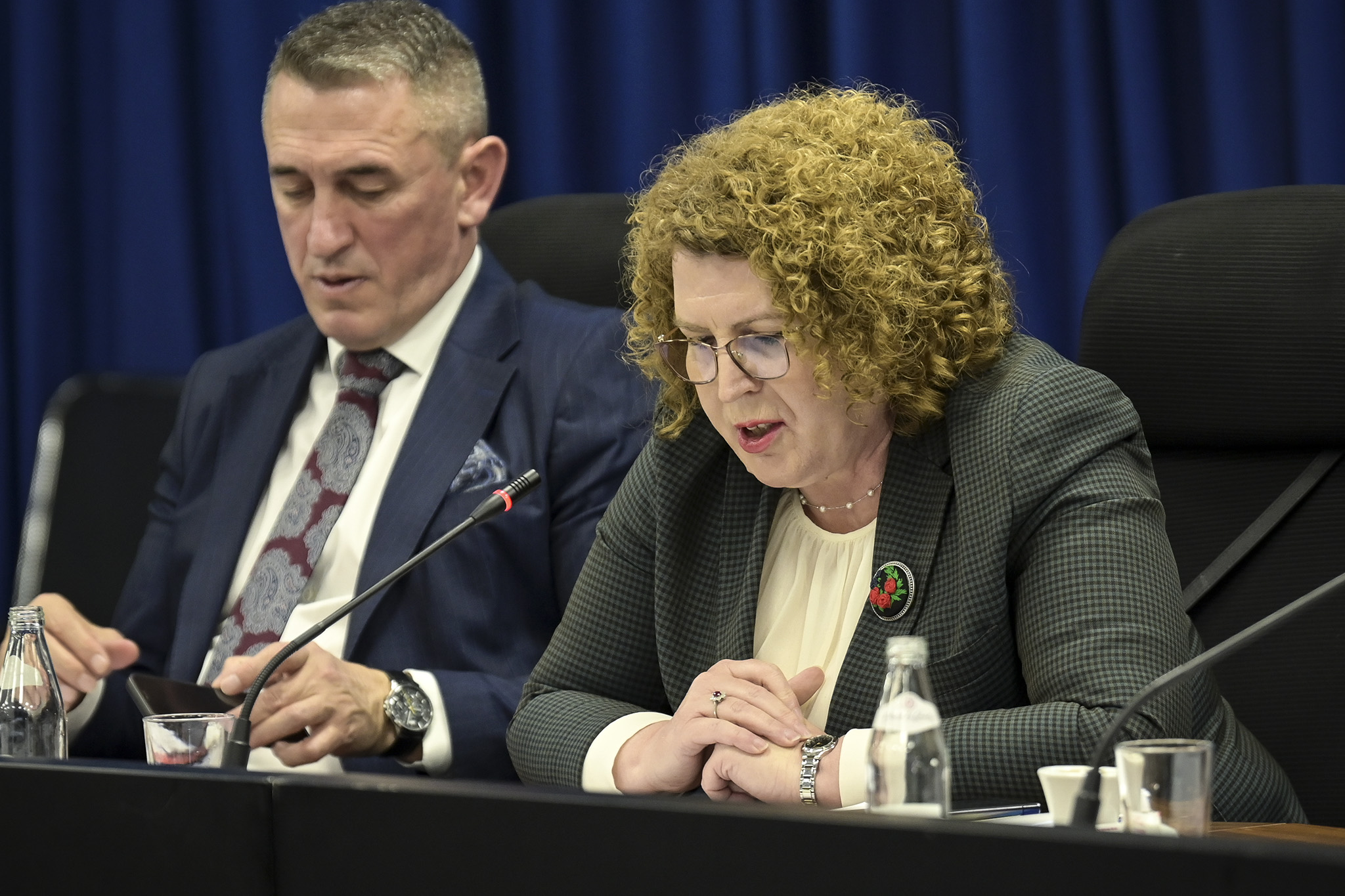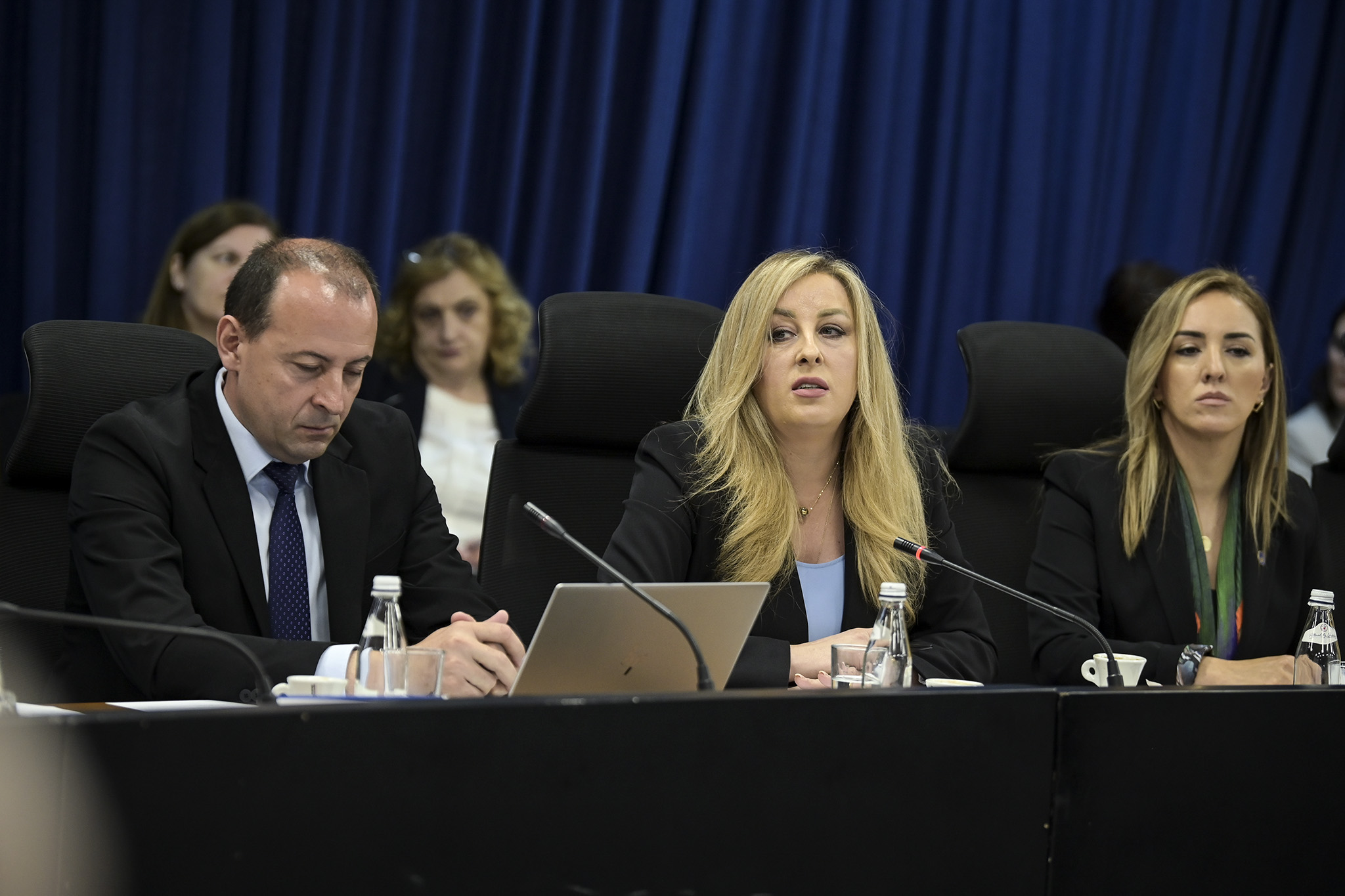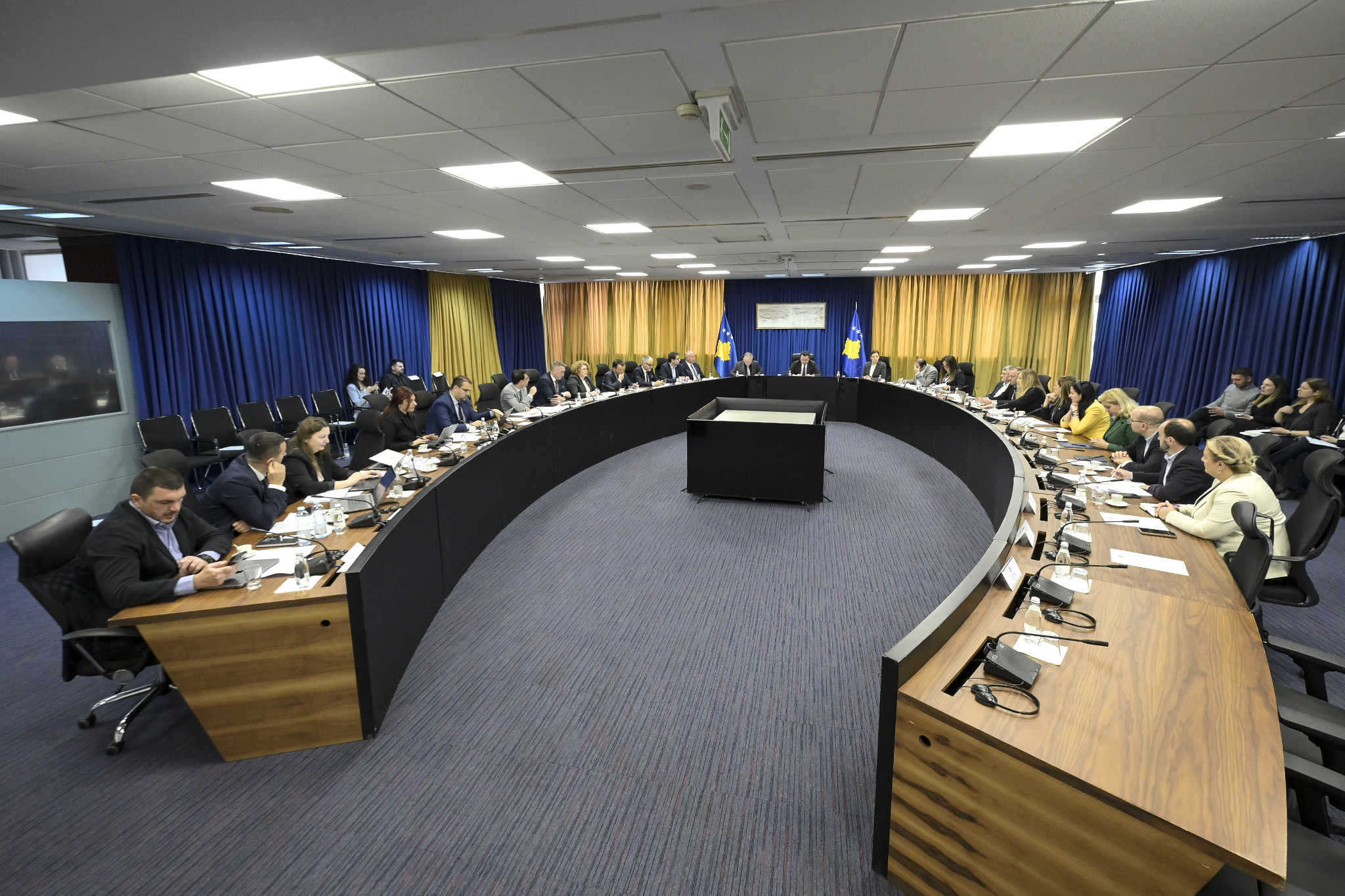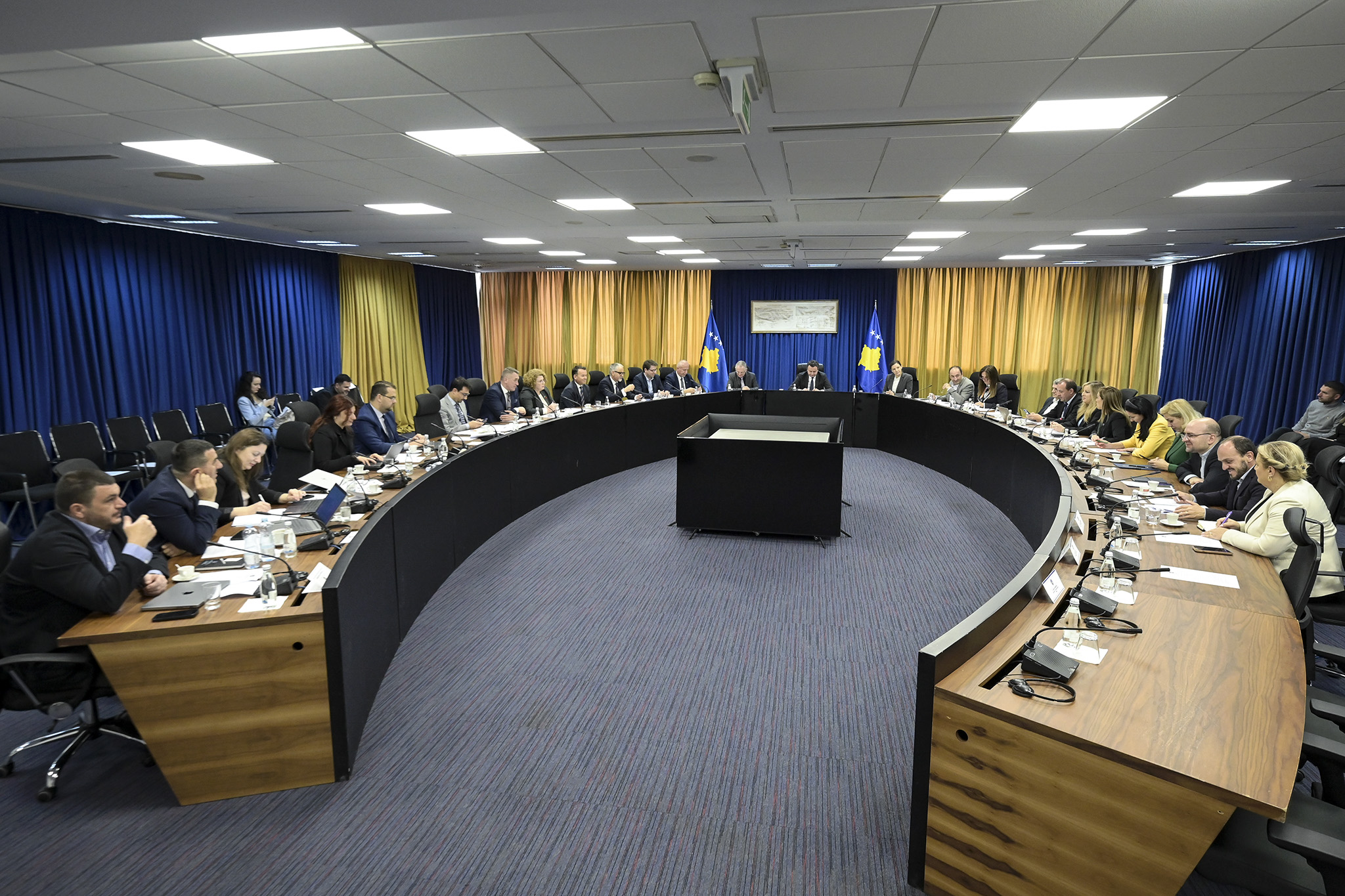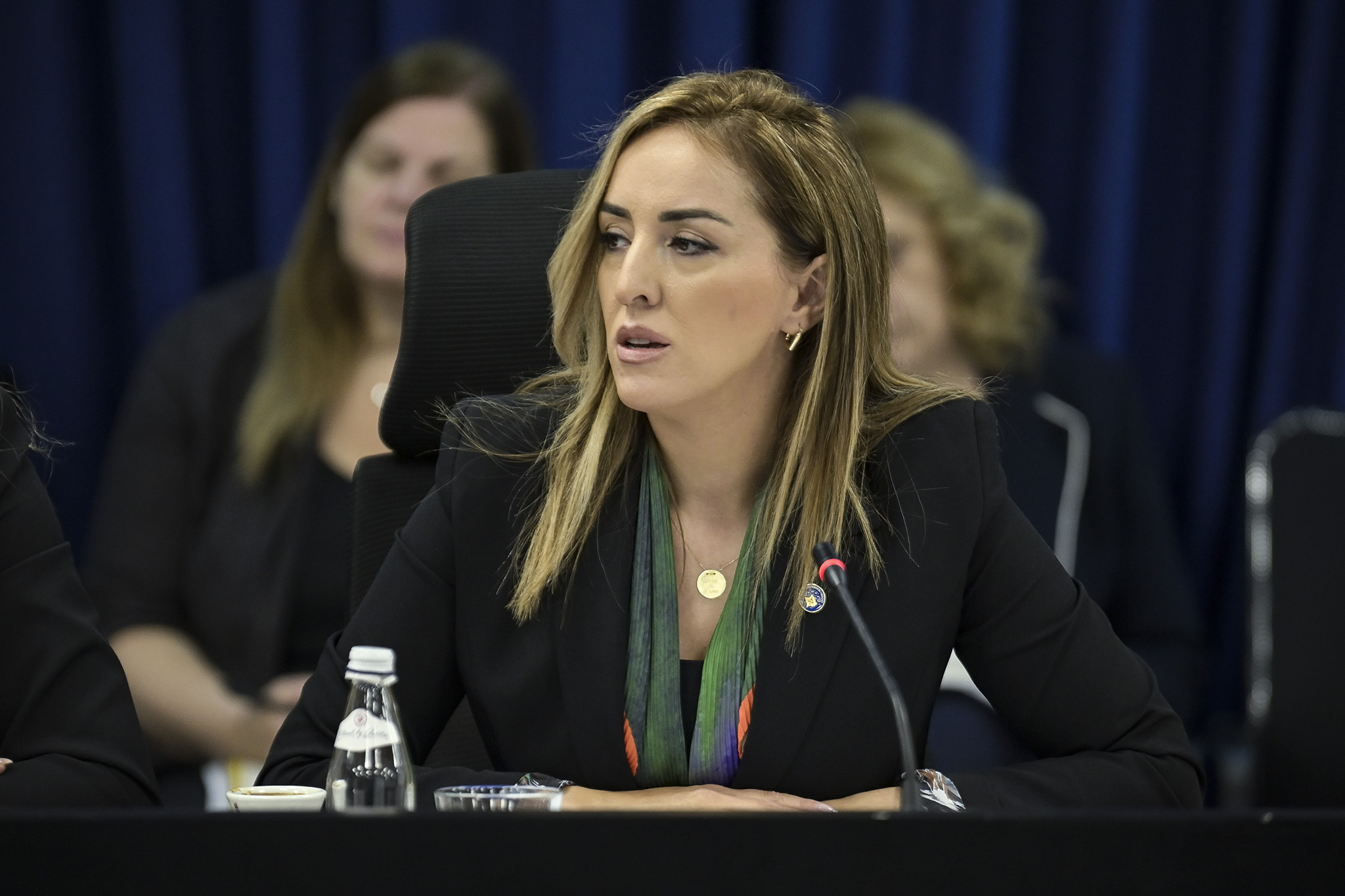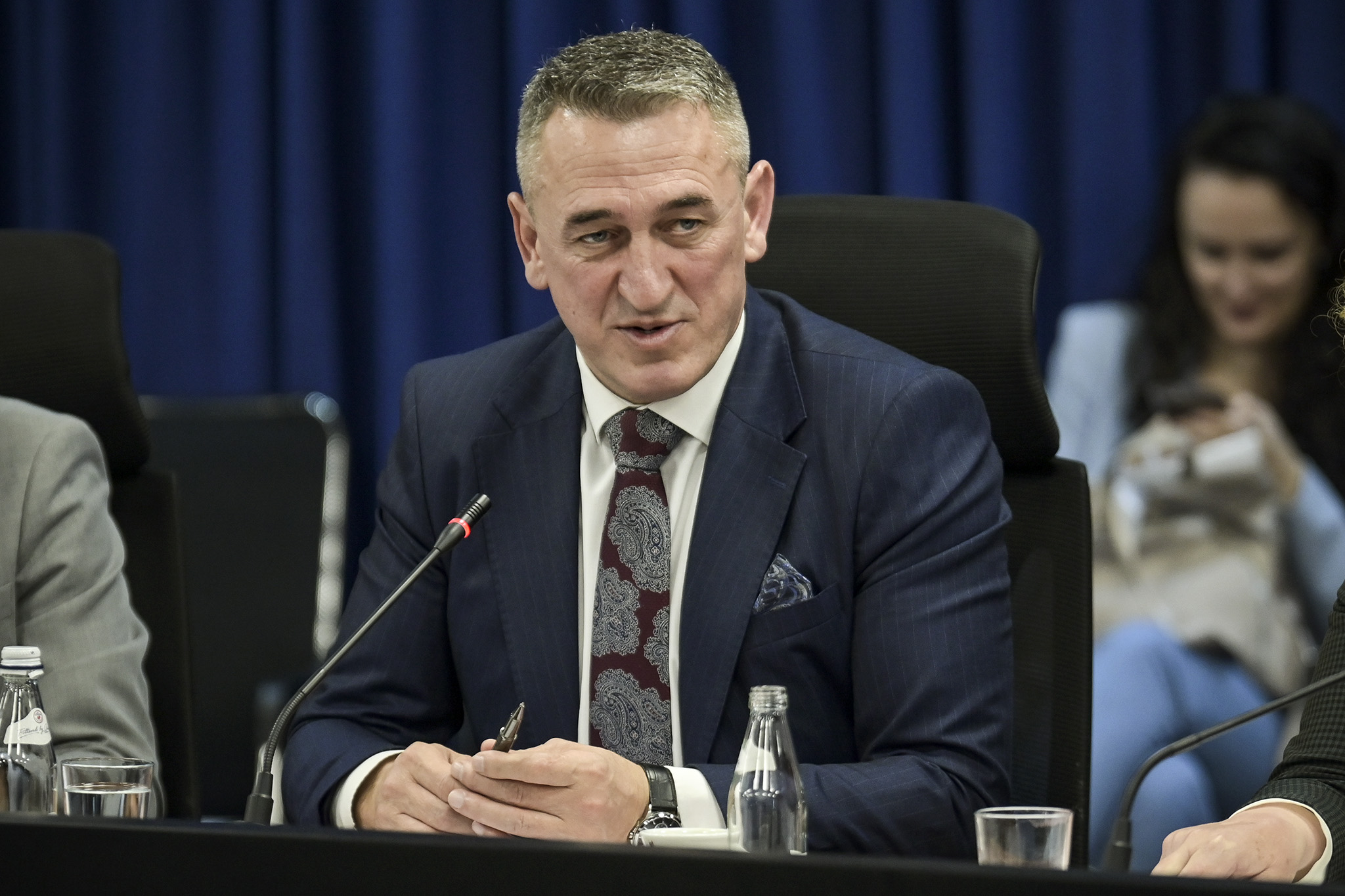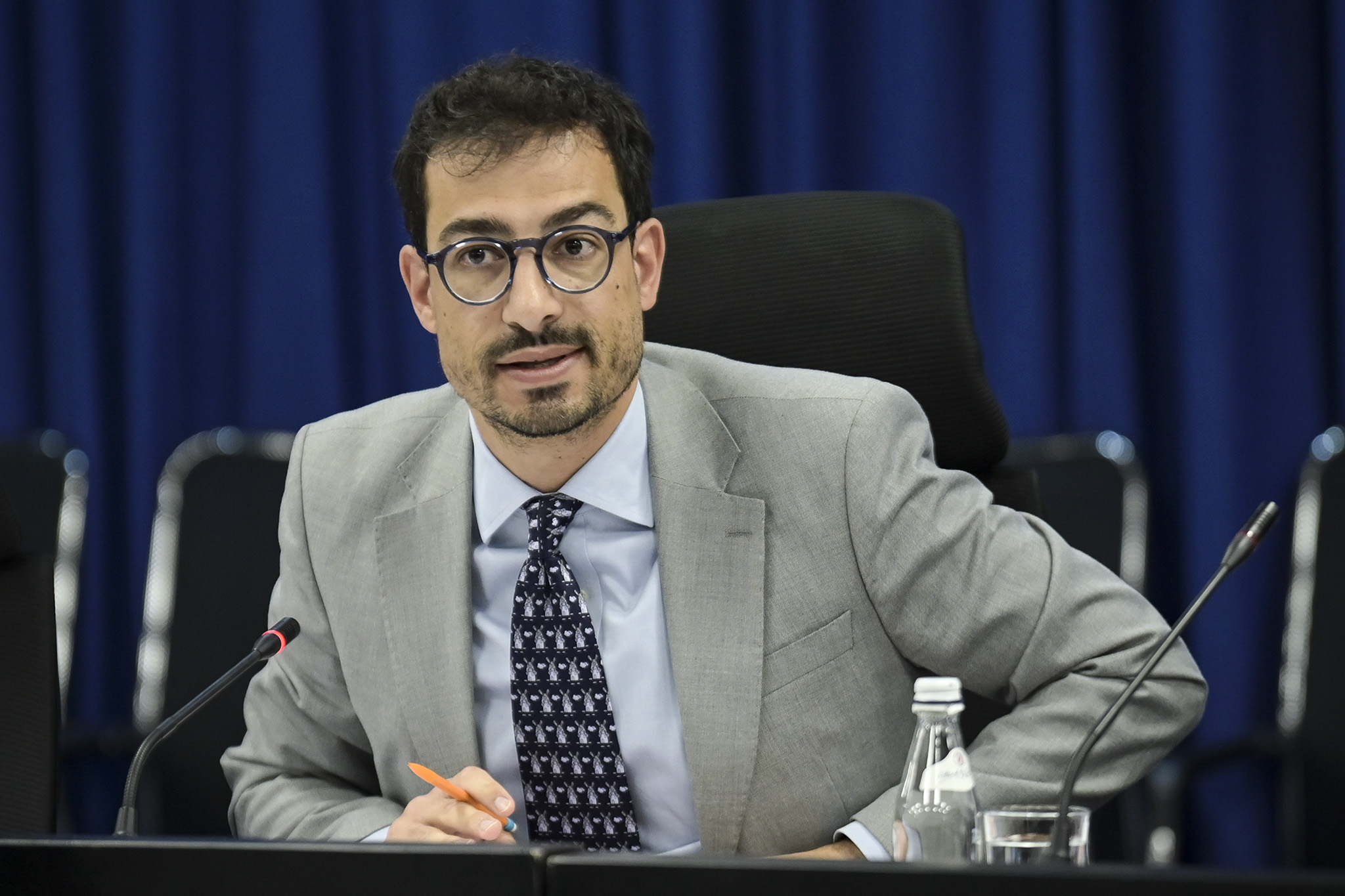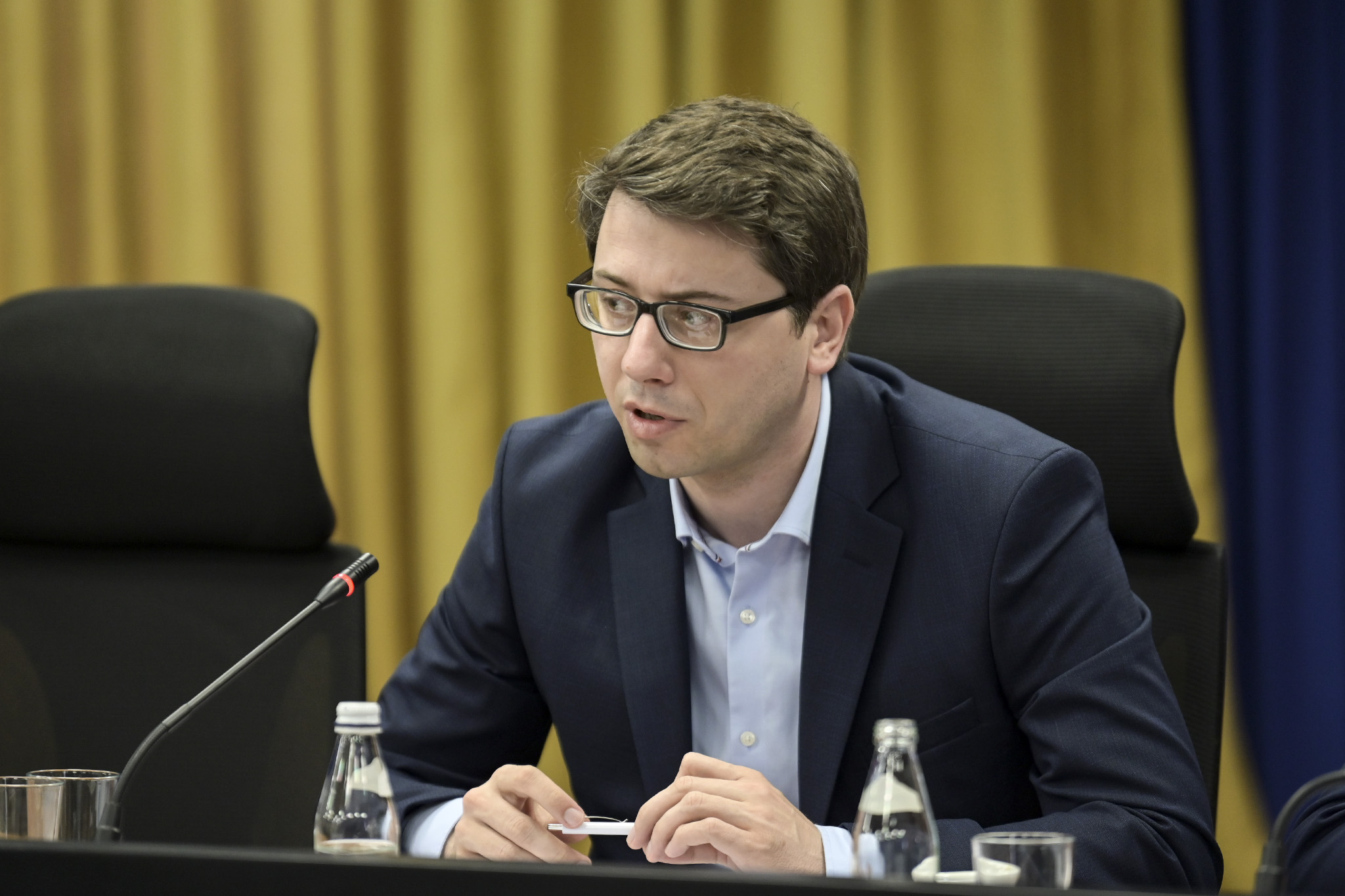Prishtina, 2 May, 2024
The sixth meeting of the Ministerial Council for European Integration was held today to discuss the Reform Agenda within the EU Growth Plan for the Western Balkans and the key reforms of the National Program for European Integration 2024-2028. The meeting was chaired by the Prime Minister of the Republic of Kosovo, Albin Kurti, while the first deputy prime minister for European Integration, Development and Dialogue, Besnik Bislimi, and ministers, heads and leaders of relevant institutions and departments were also participants.
In his introductory speech, Prime Minister Kurti emphasized the importance of EU enlargement and recalled Kosovo’s application for membership in the European Union: “As the most advanced democracy in the region, we are ready to answer thousands of technical questions that come from the European Commission. Compared to the region, Kosovo is not only ready for candidate status, but also to open negotiations and the many chapters towards membership.” said the prime minister.
Furthermore, he mentioned the Government’s commitment to the European integration process, namely the high level of implementation of the Agenda for European Reforms as well as the commitment within the Growth Plan, as a right step in the right direction.
“Also, the measures that are in force against Kosovo contradict the region’s efforts for accelerated integration in the European Union, especially with the Growth Plan and its goals. On the other hand, we are continuing our efforts to open more opportunities within the reform dialogue with the EU. In this context, we have met all the EU’s requirements for the removal of restrictive measures, and these measures must be removed.” Prime Minister Kurti added.
After the prime minister, the first deputy prime minister for European Integration, Development and Dialogue, Besnik Bislimi, also spoke, who in relation to the first item on the agenda, the discussions on the National Program for European Integration, said that it is our strategic document that represents the wide spectrum of reforms that we undertake year after year in the realization of the SAA agreement.
“These reforms, before they help us in our advancement towards EU integration, also help us in achieving and promoting the economic development of the country towards a higher standard of living and thus cover all areas and sectors covered by the work of the Government .” said Deputy Prime Minister Bislimi.
Below is the complete opening speech of Prime Minister Kurti:
Dear First Deputy Prime Minister, Mr. Besnik Bislimi,
Dear Minister and Deputy Minister
Dear leaders and representatives of independent institutions,
Dear other participants,
Ladies and gentleman,
We are opening the sixth meeting in a row of the Ministerial Council for European Integration where we will discuss two topics. The first is the Reform Agenda within the EU Plan for Economic Growth in the Western Balkans, namely for the reforms planned for the next 4 years, and the second is the National Program for European Integration 2024-2028, namely for the planned measures to be implemented this year.
Before discussing these two documents, I want to highlight three important elements.
First, after a decade of stagnation, the expansion of the European Union is back on the agenda. Russia’s aggression against Ukraine has brought back the importance of EU expansion not only as an area of socio-economic prosperity but also of peace and security.
In December 2023, the European Union Summit with the Western Balkans reaffirmed the future of our region in the EU. On December 15, 2022, in Prague of the Czech Republic, which was holding the Presidency at the time, we submitted the EU membership application. We believe that EU membership should be based on meritocracy. As the most advanced democracy in the region, we are ready to answer thousands of technical questions coming from the European Commission. Compared to the region, Kosovo is not only ready for candidate status, but also to open negotiations and the many chapters towards membership.
Second, membership in the European Union is a strategic choice. We have made elections there, the Agenda of European Reforms in our Government since the beginning of the mandate has been treated very seriously. The mobilization to catch up in the European integration process, after several years of stagnation, has led to the completion of many reforms, laws and strategies. From January 1, 2024, our citizens are already traveling without visas in the Schengen zone. As for the Agenda for European Reforms, we implemented over 70% of the reforms we planned together with the European Commission, or 245 out of 341 planned reforms. If we compare it with the first phase of the political priorities, when a total of 100 reform actions were implemented, this means that we have implemented significantly more than double the planned reforms. Furthermore, as regards the National Program for European Integration, the level of implementation has been continuously improved; from less than 60% in 2022 to around two-thirds in 2023.
Third, last week, the European Union has approved the Growth Plan for the Western Balkans, which has two goals: to accelerate the socio-economic development of the region with the EU and, in this way, to speed up the EU membership process. We see the Growth Plan as a step in the right direction. We believe that the European Union can be reformed and enlarged, and that the benefits of the European Union’s Common Market must be linked to economic and democratic reforms. Therefore, we firmly stand by the principles on which this plan is rooted. There should be no benefits from the European Union, that is, no funds, without embracing the values of the European Union. Also, the measures that are in force against Kosovo contradict the region’s efforts for accelerated integration in the European Union, especially with the Growth Plan and its goals. On the other hand, we are continuing our efforts to open more opportunities within the reform dialogue with the EU. In this context, we have met all EU requirements for the removal of restrictive measures, and these measures must be removed.
Dear participants,
Now let me return to the two strategic documents for which we have gathered today.
First, the Reform Agenda within the EU Growth Plan (2024-2027). As part of the Growth Plan, Kosovo has been invited to present the Reform Agenda, which focuses on socio-economic measures that stimulate development and convergence with the EU. The team led by the first deputy prime minister is in charge of preparing this document. The work has continued with great intensity, where after several months of negotiations with the European Commission, around 30 reforms and over 100 concrete activities have been identified, distributed in 5 areas, which are:
1. Governance, public administration reform and public finance management,
2. Green and digital transition,
3. Development of the private sector and the business environment,
4. Human capital and
5. Basics of EU membership / Rule of law.
This comprehensive reform agenda aims to further reform public administration and advance public financial management. It places a special focus on the green agenda and digitalization. In the field of the private sector, we have foreseen actions that increase investments and exports and measures that further enable access to finance. It aims to provide quality education at all levels and alignment with the needs of the labor market. And not least: this reform agenda will further advance the fight against corruption and organized crime and strengthen the protection and enforcement of fundamental rights.
We are also preparing an indicative list of projects, which aim to close infrastructural gaps and stimulate economic development, to be financed through the Growth Plan, thereby accelerating growth and convergence with the European Union. Funds from the European Growth Plan for Kosovo will be additional to those from the IPA, until from a total of around 950 million euros, half will go to the budget for the implementation of reforms, while the other half will go to investment projects.
Public consultations on this reform agenda have already begun. Last week the International Financial Institutions were consulted, a meeting with Civil Society Organizations is planned for tomorrow, until next week within the framework of the National Council for Economy and Investments, we will also consult businesses and economic organizations. At the same time, the dialogue with the European Commission is continuing and it is expected that during the month of May the entire reform agenda will be finalized, which must also be approved by the government and submitted to Brussels.
The National Program for European Integration is a legally binding document for each body of the state administration, therefore I ask you as ministers to give maximum commitment to its implementation throughout the year. During this meeting, I expect you to inform us about the progress of the implementation of the reforms you have planned and about the challenges you are facing in this direction, while throughout the year I will demand responsibility and accountability, through the Government Cabinet, the coordinating structures for European integration and other available mechanisms.
As for the reforms planned by the independent institutions, we as the Government and I as the Prime Minister, offer full cooperation and support in their implementation.
Due to the structure and content of these two documents, in the first part we will discuss the National Program for European Integration, with all your institutions, while in the second part we will continue the discussion on the Reform Agenda of the Economic Growth Plan only with those institutions that have obligations under this instrument.
We highly appreciate the work of all state institutions in drafting these two main documents for the implementation of reforms for EU integration. I also want to emphasize my appreciation for the work done so far by all your institutions in the implementation of priority reforms during the last three years, in particular the second phase of the political priorities for EU integration, or the European Reform Agenda (ERA II) and the National Program for European Integration.
For a more detailed discussion, I now invite Deputy Prime Minister Besnik Bislimi to take the floor and invite him for active discussion and good work during the year in the implementation of this document.
Thank you for your attention.
Last modified: May 3, 2024
